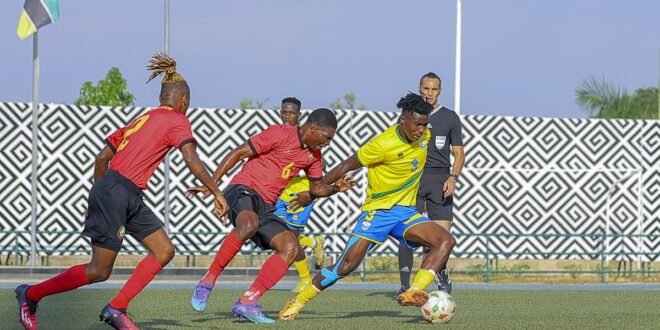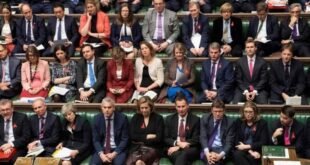The 1994 Genocide against the Tutsi left the nation devastated before the Rwanda Patriotic Army (RPA) stopped it on July 4, 1994. So many sectors were deeply affected and sports was no exception. The genocide claimed the lives of players, fans, and sports administrators and some critical infrastructure was destroyed. It was completely down that the country had to start from the scratch and 31 years later, the country has risen to become the world’s top destination for sports events and competitions. From the CHAN 2016 finals, the Basketball Africa League (2021-2025) and ATP Challenger 50, 75 and 100 to the 73rd FIFA Congress and 2024 FIA General Assembly and Awards, Rwanda is raising the bar high in hosting world-class sports events there is no plan of leaving any sports discipline behind. Up next is the UCI Road World Championship which is coming to Africa for the first time in the tournament’s history. Kigali will be home of the world’s best cyclists who will be eyeing glory in the land of the 1000 Hills from September 21-28. And dreaming big doesn’t end up there. The country now has all eyes on becoming the first sub-Saharan African nation to host a modern Formula 1 Grand Prix event, with plans for a state-of-the-art circuit near Bugesera International Airport, potentially as early as 2028. Infrastructure such as the renovated 45,000 seater Amahoro Stadium and BK Arena demonstrate that Rwanda liberation is better celebrated in actions than words. The country sees potential in sports and investing in the sector is only gaining momentum. The fact that the likes of Paris Saint-Germain, Arsenal, Bayern Munich and lately Atletico de Madrid became the country’s tourism partners via the Visit Rwanda initiative is a clear proof of how much Rwanda believes in sports. Mouna Mutavu has been working the Ministry of Sports’ communications department for quite some time and, even before she joined, she had seen it coming. From uniting and reconciling Rwandans to becoming a potential area of investment, sports has come of age and the country is only showing intentions of integrating it into its development journey. “Liberation was achieved and sports has since become a tool at the heart of bringing back peace, unity and stability to the nation,” Mutavu told Weekend Sport. “Rwanda has been able to invest in sports as a driver of unity, youth empowerment, and economic transformation. We’ve seen a shift: from minimal infrastructure and opportunity before 1994, to the emergence of a full-fledged sports development policy, world-class facilities, and globally competitive athletes.” “In this way, the growth of sports is part of the broader renaissance of Rwanda, where talent is being identified and nurtured from the grassroots, where boys and girls can dream equally, and where sport is a tool for healing, cohesion, and national pride,” she added. The strides that Rwanda is making out of sports haven’t been an easy ride at all. Rwandans were relieved that RPF Inkotanyi brought life back to the nation after stopping the genocide but later on, rebuilding the nation and the sports sector wasn’t achieved by magic. Various sports like football, volleyball, basketball, and handball had lost so many players, fans, coaches, administrators…the people who had anything to do with sports. The facilities were in ruins yet the country wanted to use sports as a tool for healing, unity and reconciliation. The country believed in the power of sports in bringing people back together, then it now believes sports can drive the national development. “It was not easy to find people to start with, but we told them that sport is the best form of healing. Nowadays you can see that the infrastructure is at a good level compared to our time,” Black Belt 7th Dan holder Tharcisse Sinzi told Weekend Sport. Sinzi was born in 1963 in Huye District, Southern Rwanda. He is one of those revived Karate in Rwanda after the 1994 Genocide against the Tutsi. Romario Abdul Jabar Gakuba, a journalist at Radio Isango Star, said reviving sports in a country plunged in darkness was not easy. “At that time, to restart clubs, local military leaders helped create teams based on the young talents they had at their disposal,” he explains. Gakuba, a genocide survivor, says a friendly match between Rayon Sports and Kiyovu Sports in late 1994 marked the return of the national team “Amavubi,” while many new clubs were founded. That is where APR FC came in. The 1995 Peace Cup was introduced to bring Rwandans together, help families reconcile, and relaunch the national football league. “There were clubs like Intare FC in Butare, Volcanique in Ruhengeri, and Marines in Gisenyi, joining others like Rayon Sports, Kiyovu Sports, Mukura VS and APR FC, which had started professional competition.” ALSO READ: What to know about renovated Amahoro Stadium inauguration Gakuba adds that, after liberating the country, some RPA leaders to the lead in reviving the Rwanda sports sector although there was little to no hope that life would come back to normal. Not even any, if you asked them, would imagine that, 32 years on, the country’s sports sector would be where it stands now. The likes of Lt. Gen. (Rtd) Caesar Kayizari took charge of the local football governing body (FERWAFA) from 1995 to 2005, and Gen. (Rtd) James Kabarebe inherited Rwanda Volleyball Federation. They are among the agents in the military personel who played a crucial role in reviving and advancing sports in the country over the years. After the genocide, Rwanda had to start the rebuild process and sports wasn’t left behind. Four years later, Rayon Sports won the CECAFA Club Championship (then known as Cecafa Kagame Cup) in Zanzibar in 1998, beating Mlandege 2–1. That was surreal for a club from a country whose people, including some players, coaches and fans alike, still had fresh wounds from the genocide. Through sports, people started to believe again that life was back. In 1999, the East and Central Africa Football Association (CECAFA) allowed Rwanda to host its 23rd Senior Challenge Cup at national team level. Rwanda entered two teams, Rwanda A and Rwanda B. Rwanda B won the trophy after beating Kenya 3–1 while Rwanda A took third place after defeating Burundi. The successful hosting boosted confidence among Rwandans and neighbors alike. CECAFA brought the tournament back to Rwanda in 2001 and 2005, along with club competitions, driving continued investment in sports infrastructure. Ten years after liberation, Rwanda qualified for the Africa Cup of Nations in Tunisia. It is the only time the country has participated at the continent’s grandest football showpiece. Then came the era of hosting big international sports events. The Kigali International Peace Marathon came to the world athletics map in 2005 and, 16 years after recognizing Tour du Rwanda on its calendar in 2009 and, the Union Cycliste International (UCI) is bringing the Road World Championship to Kigali. Not a smooth ride at all, Rwanda earned it. In that same space of period, Rwanda hosted more competitions, with each holding a special meaning in itself. The 2011 U17 World Cup Qualifiers saw the country qualify for the 2011 World Cup in Mexico while the 2016 African Nations Championship (CHAN) held in three cities—Kigali, Huye and Rubavu—left the country reached the quarterfinals where they were eliminated by eventual champions DR Congo. And, after the country embarked of the basketball revolution, opportunities followed. Building a world-class BK Arena in 2018 saw the Basketball Africa League (BAL) bring its first edition of the tournament in Kigali. Not a single season has the city missed out on hosting the competition on top of hosting other sporting events in volleyball, handball, table tennis and gymnastics. Tennis is also thriving under the new government’s approach to invest in sports. Only after two years, the Association of Tennis Professionals (ATP) entrusted the country in hosting the APT 50 for its debut year in 2024 to ATP 75 and 100 in 2025. “Each year that passes, sports development keeps improving. When you look at the good stadiums we have, it’s proof that Rwanda is liberated. Although the results on the field are not yet very good, I believe that it could be the next thing to do. Sooner or later. We can change that narrative,” said Rayon Sports WFC captain and Rwanda women forward Dorothée Mukeshimana. Today, Rwanda boasts three international-standard stadiums namely Amahoro Stadium 45,000 seats, FIFA Category-1, Kigali Pele Stadium, and Huye Stadium, plus district-level stadiums in Rubavu, Bugesera, Ngoma, Nyagatare, and Muhanga, with two more under construction in Gicumbi and Rusizi. The country has been investing in sports infrastructure to provide more space for local talents, including para athletes, to show their potential. Some notable facilities include Petit Stade Amahoro, NPC Gymnasium, Gisagara Gymnasium, Rutsiro Gymnasium, a new Gymnasium under construction in Kirehe, and numerous modern basketball courts and fields across the country. Kigali Golf Course, Gahanga Cricket Stadium, the Africa Rising Cycling Center (ARCC) in Musanze and which serves as a training and development hub for African cyclists as well as the Field of Dreams in Bugesera. All of these are attributed to Rwanda’s ambition of becoming a regional hub for sport with a target of milking more revenues from the sports investment it is making along the way.
Provided by SyndiGate Media Inc. (Syndigate.info).
 Info Malang Raya Its All About World News
Info Malang Raya Its All About World News




